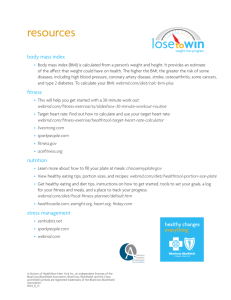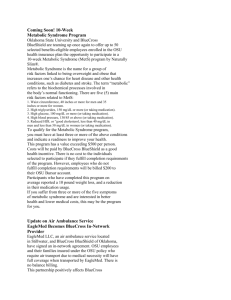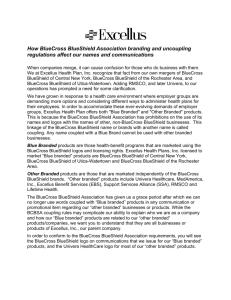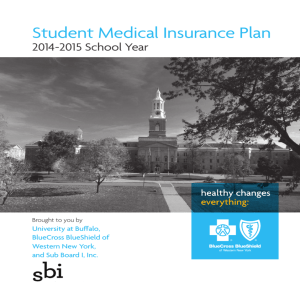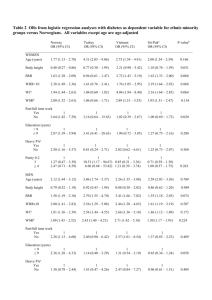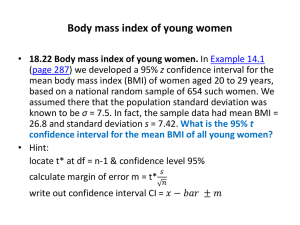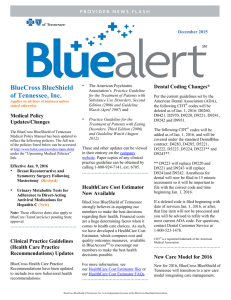Know Your Numbers
advertisement
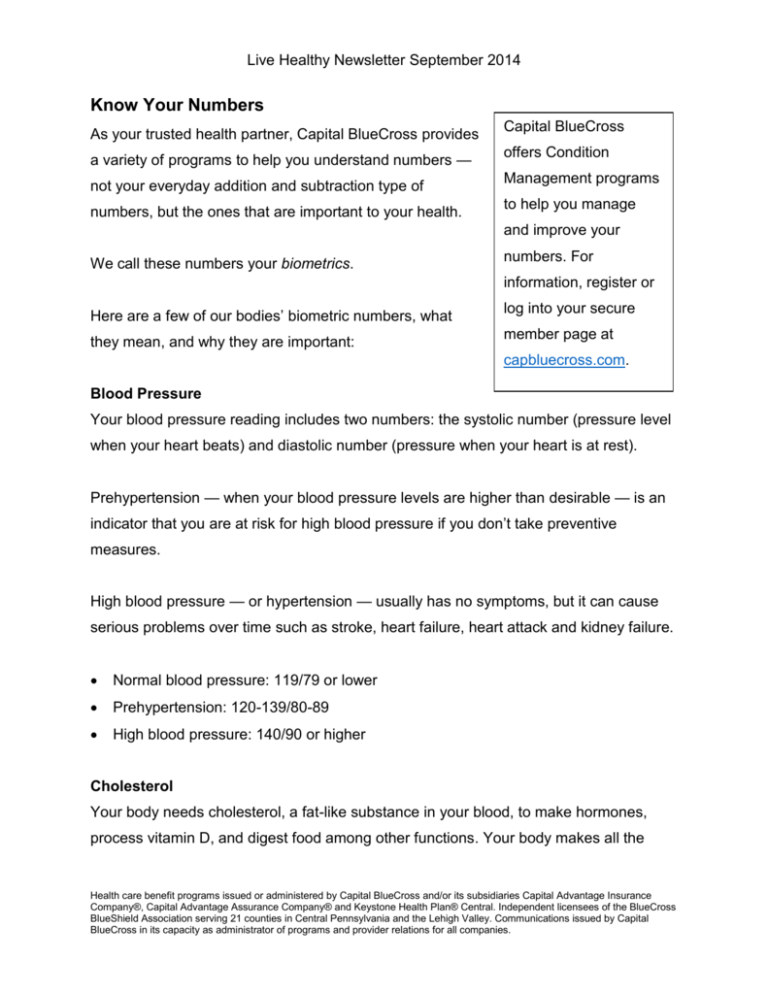
Live Healthy Newsletter September 2014 Know Your Numbers As your trusted health partner, Capital BlueCross provides a variety of programs to help you understand numbers — not your everyday addition and subtraction type of numbers, but the ones that are important to your health. Capital BlueCross offers Condition Management programs to help you manage and improve your We call these numbers your biometrics. numbers. For information, register or Here are a few of our bodies’ biometric numbers, what they mean, and why they are important: log into your secure member page at capbluecross.com. Blood Pressure Your blood pressure reading includes two numbers: the systolic number (pressure level when your heart beats) and diastolic number (pressure when your heart is at rest). Prehypertension — when your blood pressure levels are higher than desirable — is an indicator that you are at risk for high blood pressure if you don’t take preventive measures. High blood pressure — or hypertension — usually has no symptoms, but it can cause serious problems over time such as stroke, heart failure, heart attack and kidney failure. Normal blood pressure: 119/79 or lower Prehypertension: 120-139/80-89 High blood pressure: 140/90 or higher Cholesterol Your body needs cholesterol, a fat-like substance in your blood, to make hormones, process vitamin D, and digest food among other functions. Your body makes all the Health care benefit programs issued or administered by Capital BlueCross and/or its subsidiaries Capital Advantage Insurance Company®, Capital Advantage Assurance Company® and Keystone Health Plan® Central. Independent licensees of the BlueCross BlueShield Association serving 21 counties in Central Pennsylvania and the Lehigh Valley. Communications issued by Capital BlueCross in its capacity as administrator of programs and provider relations for all companies. Live Healthy Newsletter September 2014 cholesterol it needs. However, cholesterol also is found in high numbers in some of the foods you eat, such as red meats and dairy products. If you have too much cholesterol in your body, it can build up in the walls of your arteries and increase your risk of developing heart disease and other blood vessel problems. Desirable total cholesterol level = less than 200 mg/dL Desirable LDL (bad cholesterol) level = Less than 100 mg/dL Desirable HDL (good cholesterol) level = 60 mg/dL and above Blood Glucose Diabetes is a disease in which your blood glucose levels, or sugar levels, are too high. Prediabetes is a condition in which your blood sugar level is higher than normal, but not high enough for a diagnosis of diabetes. Over time, having too much glucose in your blood can cause serious problems. Even if you don't have diabetes, you may still have problems with too high or too low blood sugar. Keeping a regular schedule of eating, activity, and taking any medicines you need can help. Normal blood glucose level = 70 to 99 mg/dL Prediabetes = 100 to 125 mg/dL Diabetes = 126 mg/dL and above Note: Tests should be performed 8-12 hours after fasting, and repeated on another day to confirm results. Body Mass Index (BMI) Health care benefit programs issued or administered by Capital BlueCross and/or its subsidiaries Capital Advantage Insurance Company®, Capital Advantage Assurance Company® and Keystone Health Plan® Central. Independent licensees of the BlueCross BlueShield Association serving 21 counties in Central Pennsylvania and the Lehigh Valley. Communications issued by Capital BlueCross in its capacity as administrator of programs and provider relations for all companies. Live Healthy Newsletter September 2014 BMI, which accounts for your height and weight, can estimate body fat and gauge risk for diseases such as heart disease, high blood pressure, type 2 diabetes, gallstones, respiratory problems, and certain cancers. Although BMI can be used for most men and women, it may overestimate body fat in athletes and others who have a muscular build, or underestimate body fat in older persons and others who have lost muscle. Underweight = BMI below 18.5 Healthy weight = BMI 18.5-24.9 Overweight = BMI 25.0-29.9 Obesity = BMI above 29.9 - Source: NIH.gov Capbluecross.com now available in Spanish To access capbluecross.com in Spanish, simply visit the site and click “Español” in the top left corner. Cucumber Tea Sandwiches INGREDIENTS (Serves 10) 1 loaf pumpernickel bread (thin sandwich bread) 6 teaspoons fresh goat cheese 1/2 English cucumber, thinly sliced lengthwise 2 tablespoons red onion, thinly sliced 1 tablespoon fresh dill sprigs 1 tablespoon red pepper flakes (optional) 2 radishes, trimmed and thinly sliced 2 tablespoons black sesame seeds DIRECTIONS Spread bread with goat cheese and layer with cucumber slices. Top with red onion, radish, and dill. Season with salt. Health care benefit programs issued or administered by Capital BlueCross and/or its subsidiaries Capital Advantage Insurance Company®, Capital Advantage Assurance Company® and Keystone Health Plan® Central. Independent licensees of the BlueCross BlueShield Association serving 21 counties in Central Pennsylvania and the Lehigh Valley. Communications issued by Capital BlueCross in its capacity as administrator of programs and provider relations for all companies. Live Healthy Newsletter September 2014 NUTRITION Calories 62 | Fat 2 g | Carbohydrates 8 g | Protein 2 g Health care benefit programs issued or administered by Capital BlueCross and/or its subsidiaries Capital Advantage Insurance Company®, Capital Advantage Assurance Company® and Keystone Health Plan® Central. Independent licensees of the BlueCross BlueShield Association serving 21 counties in Central Pennsylvania and the Lehigh Valley. Communications issued by Capital BlueCross in its capacity as administrator of programs and provider relations for all companies.
